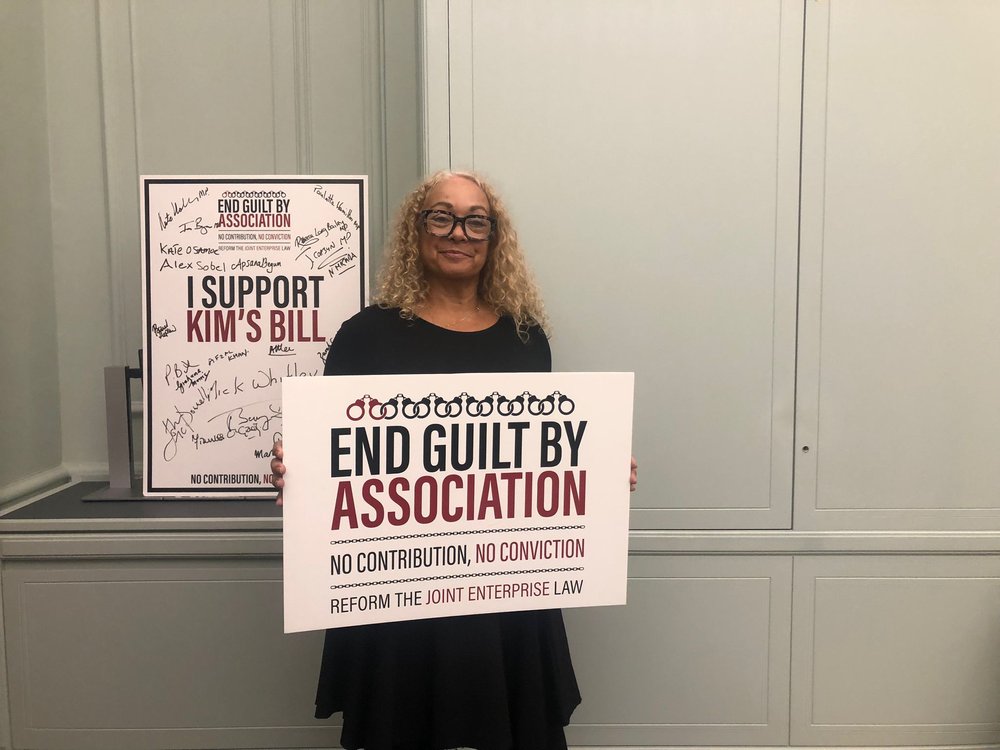A parliamentary push is to be launched to tackle the twin injustices of IPP sentences and joint enterprise as part of the Labour government’s emergency measures to deal with the ‘total collapse’ of the prison system. Kim Johnson MP is planning an amendment to the King’s Speech this week, calling for action on the two issues as the new justice secretary Shabana Mahmood launches a scheme to release more than five thousand prisoners in September and October.
In a debate last Thursday on prison capacity, Shabana Mahmood told MPs that since she took office it had become clear that ‘our prisons are in crisis and are at the point of collapse’ and the male estate was running ‘at over 99% capacity’ for the last 18 months. ‘Rather than address this crisis, the former Prime Minister called an election, leaving a ticking time bomb,’ she said. ‘If that bomb were to go off—if our prisons were to run out of space—the courts would grind to a halt, suspects could not be held in custody and police officers would be unable to make arrests, leaving criminals free to act without consequence. In short, if we fail to act now, we face the prospect of a total breakdown of law and order.’
Mahmood proposes that those prisoners on determinate sentences could leave prison after serving 40%, rather than 50%, of their sentence. ‘Our impact assessment estimates that around 5,500 offenders will be released in September and October,’ she said. She called the plan ‘an emergency measure, not a permanent change’ to be reviewed in 18 months.
The Labour MP Bambos Charalambos pointed out that the IPP (imprisonment for public protection) prison population was ‘more than 2,700 and 99% of those prisoners were over tariff including more than 700 prisoners 10 years over original tariff. ‘Can she accelerate the Ministry of Justice’s refreshed IPP action plan to help to reduce the prison population and right that wrong?’ he asked.
Kim Johnson, MP for Liverpool Riverside, argues that joint enterprise is ‘similarly widely accepted as the cause of thousands of miscarriages of justice – including by the Labour Party’. ‘It provides a legal mechanism for large groups of mostly young, black men to be rounded up under the guise of “gang violence” for crimes that some or many of them had no discernible role in committing,’ she argues.
She quoted the campaign group JENGbA (Joint Enterprise Not Guilty by Association) describing the discredited common law doctrine as a ‘dragnet’ operating with ‘often no rhyme nor reason behind why one person is picked up by the police and prosecuted under joint enterprise and another is not’.
The MP argues that a CPS pilot study last year indicates over a thousand people are tried every year for joint enterprise. ‘At a time when we have record backlogs in the courts and our prisons are dangerously overcrowded, we must consider urgent action to end the overzealous application of joint enterprise prosecutions and sentencing,’ Johnson argued. The MP intends to table an amendment to the King’s Speech this week calling for action on both IPPs and joint enterprise. ‘I hope that the new government will hear the strength of feeling and take it forward urgently and begin to finally put an end to these miscarriages of justice once and for all,’ she says.
Labour when in opposition indicated that it would tackle joint enterprise – as reported in the recent debate over Johnson’s Bill to tighten up the law. In last week’s debate, Shabana Mahmood told Johnson that joint enterprise was not relevant to her early releases scheme ‘but I know that it is an issue of real concern and interest for my hon. Friend and other Members across the House’. She said the situation with IPP prisoners was of’ great concern’ and that ‘huge numbers’ of MPs on both sides shared that concern. But added that IPP prisoners were ‘not caught in the changes that we are putting forward’ and any had to accou







